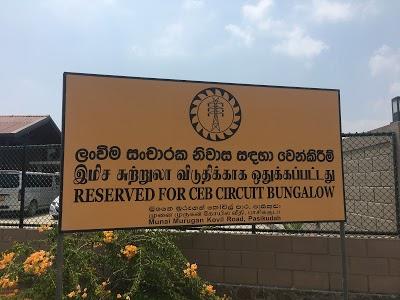Sri Lanka

South Asia Regional Energy Hub (SAREH)
To accelerate the implementation of Asia EDGE in South Asia, USAID/India has tasked the U.S. Energy Association with launching a series of inception activities that will establish a regional energy cooperation platform – the South Asia Regional Energy Hub (SAREH). SAREH will promote the development of economical, reliable and clean energy access across South Asia, while supporting U.S. strategic interests and growing private sector engagement in the Indo-Pacific to create investment opportunities for U.S. companies. SAREH will engage a suite of stakeholders across the region and will coordinate interventions with USAID bilateral and regional missions, other USG agencies supporting the initiative, private sector entities national governments, international donors and financial institutions, and civil society organizations.
South Asia Regional Initiative for Energy Integration (SARI/EI)
For over a decade the US Agency for International Development (USAID) has been consistently striving for the promotion of energy security in the South Asian nations. The USAID launched the South Asia Regional Initiative for Energy (SARI/E) program in 2000 covering eight countries: Afghanistan, Bangladesh, Bhutan, India, the Maldives, Nepal, Pakistan, and Sri Lanka. The first three phases of the program focused on areas of cross-border energy trade (CBET), energy market formation, and regional clean energy development. Phase four, which was completed in September 2018, furthered the advancement of regional energy integration and increasing cross-border electricity trade (CBET).
Due to EUPP’s SARI/EI workshops and training, opportunities for CBET in the region have increased, particularly now that energy security has become a political priority for all the country governments. Stakeholders are mobilizing for regional and sub-regional projects in the areas of power generation, transmission and power trade.
U.S.-Asia Gas Partnership (AGP)
In 2019, the U.S. Agency for International Development (USAID) launched the U.S.-Asia Gas Partnership (AGP) covering eight countries: Bangladesh, India, Indonesia, Papua New Guinea, Philippines, Sri Lanka, Thailand, and Vietnam. AGP is a public-private partnership between government and industry representatives to optimize the development of secure, reliable, and economic sources of natural gas across the Indo-Pacific.
AGP convenes a diverse set of stakeholders to optimize gas network infrastructure planning through the U.S. Agency for International Development, in collaboration with the U.S. Energy Association and the National Association of Regulatory Utility Commissioners (NARUC), to develop domestic gas markets in Asia. AGP will support strategic planning to promote the development of resilient and least-cost power systems that will continue to meet demand over time.
The objective of the AGP is to share best practices in the development of secure, reliable, and economic sources of natural gas. Practical training and strategic advice targeted at ministries and regulators aims to drive more informed policy and decision-making. With a long-term vision to enable the creation of a regional gas market, the AGP will facilitate a shared understanding between government officials and the private sector about the technical, commercial, and economic factors that spur investment.


